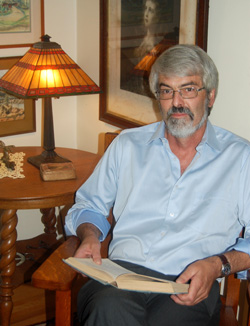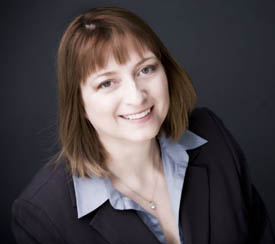Two U of A professors want to do a little follow-up on a study that began over two decades ago

Harvey Krahn
In the long term, what Krahn was looking for answers to was how these high school students would fare in the school-to-work transition, given that many would be attempting to find employment while Canada was still trying to recover from the deepest and longest economic recession since the Second World War.
"It's been over 25 years since the first study, says Krahn who, with Nancy Galambos-his research partner and associate chair of graduate studies in the Department of Psychology-is trying to reconnect with as many participants as he can for some follow-up questions about how expectations have changed over time.
"That's what makes it really interesting," he says about the longevity of the data he's trying to collect about the cohort that came to be known as Generation X. "But it's not just any 26 years since the original study. They left high school being prepped to think 'hey, the world's changing out there. Things are tough.' "
To avoid throwing themselves into the creaking job market-or because that was their plan all along-many of the students went directly from high school into postsecondary institutions. So many chose this option that enrollment reached numbers unseen in previous generations. "They went through college and university at a time when people were being told for the first time that they need higher education," says Krahn. "Good jobs were getting harder to come by, although the study found that people here in Alberta, and this group in particular, did fairly well even without university education because of the kind of work available in the province, albeit in an often boom and bust cycle."
"It's not just any 26 years since the original study. They left high school being prepped to think 'hey, the world's changing out there. Things are tough.' "
One of those study participants who faired well after graduating from high school is Wanda Dalla Costa, '91 BA. After earning her degree from the U of A, Dalla Costa packed her backpack and spent seven years travelling overseas before returning to Canada to get a Master's of Architecture degree from the University of Calgary. She worked as an architect in Calgary for another eight years before moving to Los Angeles where she's currently working towards a post-graduate Master's of Environmental Research in Urban Design at the Southern California Institute of Architecture. Dalla Costa-" I am not a cold weather person"-hopes to find work in L.A. after graduation.
"I am status Indian," she says, "and with 50 percent blood you can cross the border and get an automatic permanent resident card. I didn't believe it at first, but after one-and-a-half years of paperwork, they say the green card is finally in the mail."
Dalla Costa says that she doesn't really remember what she wanted to be back in 1985, but that it was probably a lawyer or social worker. "I tried law school for one year after my BA and was bored to death," she laughs. But, looking back, her recommendation to young adults graduating from high school is to experience life before deciding on a career. "And if that kid was female," she says, "I would tell her not to be intimidated by the math and science in a field like architecture, or any other male-dominated profession."
Although Dalla Costa had the fortitude to throw fortune to the winds after graduating from the U of A, for the many who chose to go the route of higher education right after high school, there was another surprise waiting for them upon graduation. "Bang," says Krahn, "another recession hit them in '91 and '92, just as many of them were coming out of university or college, some with a lot of student debt."
"We want to look at work and education issues these people have had along with raising families and maybe looking after parents."
In fact, Krahn did a follow-up study in 1999 that managed to reconnect with almost 60 percent of the original participants. "What's also interesting about this group," he says, "is how long some of these people stayed home with their parents because of the economy. They lived in their parents' homes longer, married later, changed careers several times before they turned 30. So the question is, as a generation, what do they look like right now? In postwar generations, many people in their 40s were grandparents and well into their careers, comfortably situated in their communities. They knew where they were and how they fit in. We don't know about this group. Do they feel that they've made an impact on their community and the world?"
Study participant Ben Firth thinks he has. "I think at 44, I've accomplished something," he says. But it didn't always look like that would be the case. In 1985 he was living alone-his parents had decamped to Saudi Arabia leaving him the apartment and the car, and the responsibility of looking after both, as well as himself. The high school student council president was a self-confessed jock who wanted a break from school after graduation, which led to a series of minimum wage jobs before he enrolled in computer courses at NAIT in 1994. He was hired by the Alberta provincial government right out of school-around the time of Y2K when the world feared all those zeros in the year 2000 would spell binary Armageddon.
Needless to say, the world didn't end. But the fear that it would did help Firth go on to become a director responsible for overseeing all shared services between the provincial government departments. Now, still living in Edmonton and the father of two teenaged daughters, Firth looks back and says the one thing he most would have liked to tell that kid in high school who agreed to participate in this survey is "to travel more and experience the world, but make sure you go back to school before you get too old."
Not surprisingly, Dalla Costa echoes that advice: "Travel, grow, experience life before you pick your career," she says. "In 1985, I had a very narrow view of life, as most kids do. A lot has changed since then."

Nancy Galambos
And that's just what Krahn and Galambos are hoping to tap into. "Now," says Krahn, "we want to look at work and education issues these people have had along with raising families and maybe looking after parents. They're in their 40s now and have children and parents in their 70s. So we want to evaluate what's changed over the course of their lives. Their aspirational views have certainly changed."
"We're looking at what's important in middle age," adds Galambos. "We're looking at family life outcomes, marital satisfaction, satisfaction with children, and whether a feeling of contributing to society becomes important at this age. We're adding measures to it that are somewhat psychological."
Both researchers note that the amount of data that will have been collected on these participants over such a long period of time is what makes this study so distinct and such a valuable public resource. "There's just not very many studies in the world that can do that," says Galambos. "And we have modern methods to capture that change, so it's really exciting."
We at New Trail welcome your comments. Robust debate and criticism are encouraged, provided it is respectful. We reserve the right to reject comments, images or links that attack ethnicity, nationality, religion, gender or sexual orientation; that include offensive language, threats, spam; are fraudulent or defamatory; infringe on copyright or trademarks; and that just generally aren’t very nice. Discussion is monitored and violation of these guidelines will result in comments being disabled.